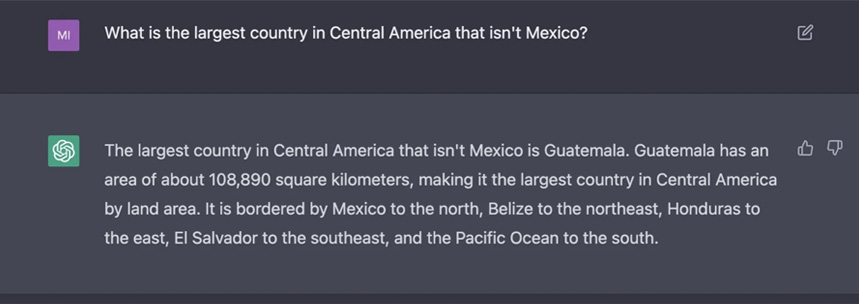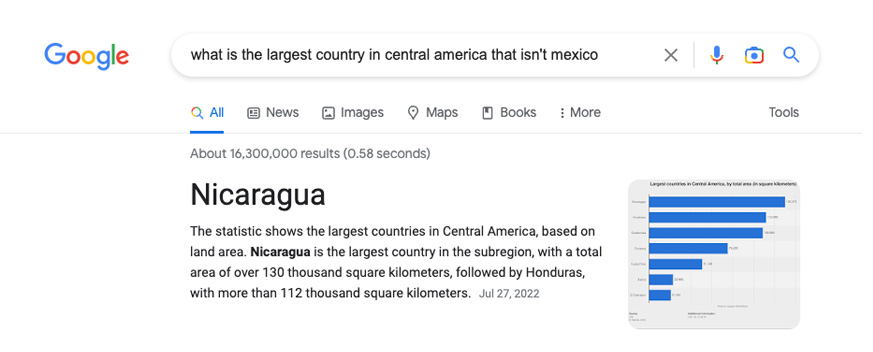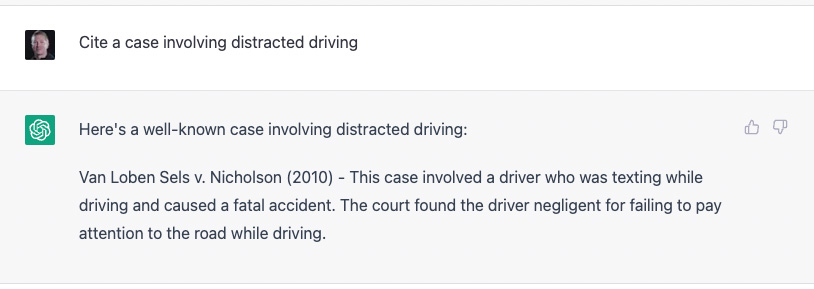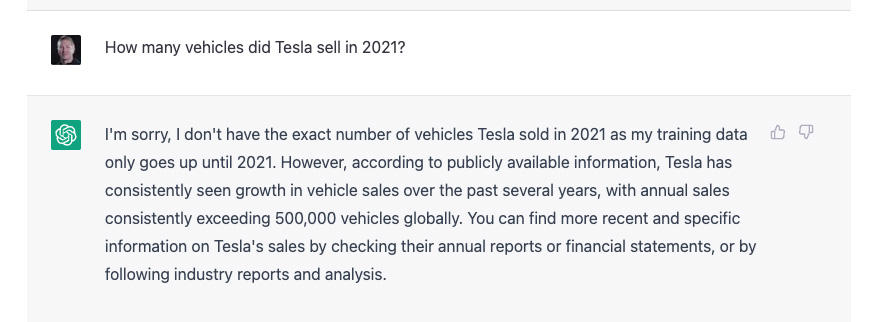There’s been an insane amount of buzz around chatGPT in the past couple of months. From large media outlets, television news coverage, or social media, it seems you can’t go a single day without hearing someone talk about it. And understandably so! For most, ChatGPT is exciting new technology that has many incredible use cases. One use case in particular that many people in the digital world are talking about is content generation. For those that have never experienced using AI to generate text, it seems like a great idea to use a GPT (Generative Pre-trained Transformer) like chatGPT to create new content for a website. However, from an SEO standpoint, this is not a smart idea.
Let’s talk about a few of the reasons why you should not use chatGPT to write content for your website.
A.I. Generated Content Can Be Detected
While for most people, GPT generated content is a new thing, it’s far from a novel concept. The technology has been around for many years. Personally, I’ve been experimenting with different versions of OpenAI GPTs since 2019, as I was a beta tester with GPT-2 and GPT-3. At this moment, there is plenty of software on the market that is capable of detecting whether or not a piece of content is AI generated. It’s a hot topic right now in the education space, where teachers are trying to determine if students are using chatGPT to do their work for them. AI content detection software typically works by using machine learning algorithms to analyze text for various features such as language patterns, syntax, and style. ChatGPT will also be integrating a watermarking feature that uses cryptography to indicate that a piece of content was created by their software. The idea behind this is to avoid misuse of AI in deceptive ways (such as mass generation of propaganda). While AI generated content may potentially work for a short period of time, we can expect future Google algorithm updates that will try and combat the use of AI generated content.
ChatGPT is sometimes factually incorrect
ChatGPT is not always right, so you cannot always rely on the information it gives you. There are plenty of examples being shared on social media of chatGPT being incorrect.
Here’s another example. This should be easy for it to answer this question, but it gets it incorrect.

No, it’s not a Google killer yet. Here’s the answer that Google gives me.

I asked chatGPT a question right now. It produced a fictitious case example here.

ChatGPT produces duplicate content
If you and I both ask chatGPT to write an article on “How to Find the Best Personal Injury Lawyer”, it will often generate the exact same response, at least for large blocks of text where the content is verbatim. Of course, you’re not the only person wondering if you should use chatGPT to create content for your website. Now imagine 100 different personal injury law firms asking chatGPT to write that same article. Yea, there will be lots of content with the same information. That’s not a great recipe for success when it comes to SEO for lawyers.
ChatGPT doesn’t provide current information
I asked ChatGPT a simple question. As you can see the the response, the training data for chatGPT only goes back to 2021. So, it’s not current and can’t answer anything after the training data.

AI Generated Content is Against Google’s Guidelines
As if the reasons above weren’t enough, did you know AI generated content is against Google’s guidelines? According to Google’s search advocate John Mueller, it falls under the category of auto-generated content, which could lead to a manual penalty. In a recent Google SEO office hours, in regards to the topic of AI generated content he said:
“Currently it’s all against the webmaster guidelines. So from our point of view, if we were to run across something like that, if the webspam team were to see it, they would see it as spam.”
Before making that statement, he also said the following:
“I can’t claim that. But for us, if we see that something is automatically generated, then the webspam team can definitely take action on that.
And I don’t know how the future will evolve there, but I imagine like with any other of these technologies, there will be a little bit of a cat and mouse game, where sometimes people will do something and they get away with it, and then the webspam team catches up and solves that issue on a broader scale.
From our recommendation we still see it as automatically generated content. I think over time maybe this is something that will evolve in that it will become more of a tool for people. Kind of like you would use machine translation as a basis for creating a translated version of a website, but you still work through it manually.
And maybe over time these AI tools will evolve in that direction that you use them to be more efficient in your writing or to make sure that you’re writing in a proper way like the spelling and the grammar checking tools, which are also based on machine learning. But I don’t know what the future brings there.”
Here is the video clip with John discussing it if you want to watch it.
TL;DR
While ChatGPT has many amazing use cases (we use it ourselves for a variety of things), we do not recommend using ChatGPT to write the content for your website. While there are potential short term benefits, it’s not worth risking penalty or loss of trust for your website.

